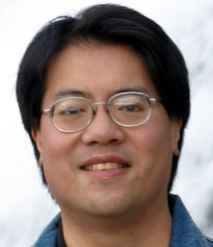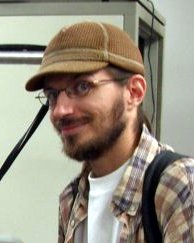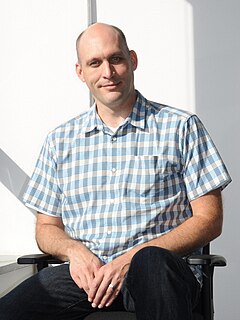
GNU is an operating system and an extensive collection of computer software. GNU is composed wholly of free software, most of which is licensed under the GNU Project's own General Public License (GPL).

Andrew Keith Paul Morton is an Australian software engineer, best known as one of the lead developers of the Linux kernel. He is currently a co-maintainer of the Ext3 file system and the journaling layer for block devices (JBD).

μClinux is a variation of the Linux kernel, previously maintained as a fork, that targets microcontrollers without a memory management unit (MMU). It was integrated into the mainline of development as of 2.5.46; the project continues to develop patches and tools for microcontrollers. The homepage lists Linux kernel releases for 2.0, 2.4 and 2.6.
The Linux kernel mailing list (LKML) is the main electronic mailing list for Linux kernel development, where the majority of the announcements, discussions, debates, and flame wars over the kernel take place. Many other mailing lists exist to discuss the different subsystems and ports of the Linux kernel, but LKML is the principal communication channel among Linux kernel developers. It is a very high-volume list, usually receiving about 1,000 messages each day, most of which are kernel code patches.

Ingo Molnár, employed by Red Hat as of May 2013, is a Hungarian Linux hacker. He is best known for his contributions to the operating system in terms of security and performance.
Keith Packard is a software developer, best known for his work on the X Window System.

Theodore Yue Tak Ts'o (曹子德) is a software engineer mainly known for his contributions to the Linux kernel, in particular his contributions to file systems. He is the primary developer and maintainer of e2fsprogs, the userspace utilities for the ext2, ext3 and ext4 filesystems, and is a maintainer for the ext4 file system.

David Stephen Miller is an American software developer working on the Linux kernel, where he is the primary maintainer of the networking subsystem and individual networking drivers, the SPARC implementation, and the ide subsystem. With other people, he co-maintains the crypto api, kprobes, ipsec, and is also involved in other development work.

Greg Kroah-Hartman (GKH) is a major Linux kernel developer. As of April 2013 he is the Linux kernel maintainer for the -stable branch, the staging subsystem, USB, driver core, debugfs, kref, kobject, and the sysfs kernel subsystems, Userspace I/O, and TTY layer. He also created linux-hotplug, the udev project, and the Linux Driver Project. He worked for Novell in the SUSE Labs division and, as of 1 February 2012, works at the Linux Foundation.
GNU variants are operating systems based upon the GNU operating system. According to the GNU project and others, these also include most operating systems using the Linux kernel and a few others using BSD-based kernels.
Jens Axboe is a Linux kernel hacker.
Kristoffer Ericson is a Swedish Linux coder best known for his work on embedded systems. He currently maintains two platforms in the Linux kernel and sponsors several others.

Chris Wright is a Linux kernel developer and CTO with Red Hat. He is the current Linux kernel co-maintainer for the -stable branch with Greg Kroah-Hartman. He is involved in Linux kernel security related topics and is currently the maintainer for the LSM framework.

Linux-libre is an operating system kernel and a GNU package.
perf is a performance analyzing tool in Linux, available from Linux kernel version 2.6.31. Userspace controlling utility, named perf, is accessed from the command line and provides a number of subcommands; it is capable of statistical profiling of the entire system.

The Linux Programming Interface: A Linux and UNIX System Programming Handbook is a book written by Michael Kerrisk, which documents the APIs of the Linux kernel and of the GNU C Library (glibc).
kGraft is a feature of the Linux kernel that implements live patching of a running kernel, which allows kernel patches to be applied while the kernel is still running. By avoiding the need for rebooting the system with a new kernel that contains the desired patches, kGraft aims to maximize the system uptime and availability. At the same time, kGraft allows kernel-related security updates to be applied without deferring them to scheduled downtimes. Internally, kGraft allows entire functions in a running kernel to be replaced with their patched versions, doing that safely by selectively using original versions of functions to ensure per-process consistency while the live patching is performed.
Sage Sharp is a software engineer who has worked on the Linux kernel, including serving on the Linux Foundation's Technical Advisory Board for two years.











